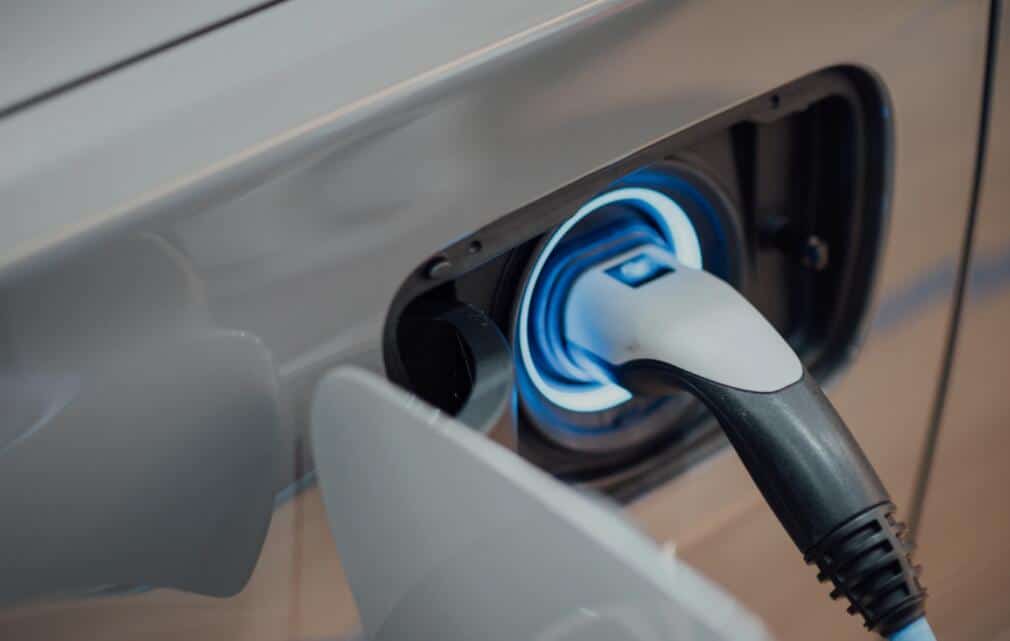"Just In" is a new section of CnEVPost, which aims to present information that we see every day and that you should know too, from the perspective of an observer of the Chinese electric vehicle industry.
We present this content in a summary format, with the latest at the top, and hope you find it useful.
21:20 (GMT+8)
An affiliate of TikTok's local rival, Chinese short-video platform Kuaishou, has registered multiple trademarks involving "Kuaishou Car," with international classification including scientific instruments, socio-legal, and edutainment.
The registration of these trademarks was filed in September 2019 and is seen as the company's long-standing intention to enter the automotive sector.

21:15 (GMT+8)
Geely's EV brand Zeekr plans to deliver 10,000 Zeekr 001 units within the year, with monthly sales expected to exceed 10,000 units next year, according to Cheyitiao, a WeChat account that follows the Chinese car market.
Zeekr has a delivery target of 1,500 units in October and aims to deliver a total of 8,500 units in November and December. It currently has a planned annual capacity of 180,000 units, the report added, saying this is in line with Citi's previous expectations.
Geely's EV brand Zeekr reportedly plans to deliver 10,000 units of Zeekr 001 within this year
14:19 (GMT+8)
The city of Jinan in eastern China's Shandong province is offering RMB 1 million ($155,142) for each new energy vehicle model released by a company in the region.
Yang Futao, deputy director of the Bureau of Industry and Information Technology in Jinan, announced the plan at a press conference Friday, saying the new energy and energy-saving vehicle and parts industry is an important pillar industry in Jinan, which will further increase support.
Chinese city Jinan to reward local NEV firms with 1 million yuan for each new model released
14:19 (GMT+8)
Chinese auto stocks continued to advance in late afternoon trading Friday, with BYD up nearly 9 percent. Changan Automobile went up by the daily limit of 10 percent. An ETF tracking the new energy auto sector rose more than 5 percent.


13:44 (GMT+8)
Shanghai-listed Beijing Electronic Zone High-Tech Group said Friday it has recently entered into a partnership with Nio to bring the latter's second-generation battery swap station into its digital new media innovation industrial park in Beijing.
The two sides will conduct in-depth discussions and cooperation on brand building, product innovation and green living, the company said.
NIO partners with Beijing real estate developer on battery swap station
13:14 (GMT+8)
Nio's first second-generation battery swap station in Yangzhou City, Jiangsu Province, in eastern China, is in operation, bringing its total number of such energy replenishment facility in China to 261.
Nio aims to have 500 battery swap stations in China by the end of this year.


(Source: Nio)
12:59 (GMT+8)
Chinese MEMS LiDAR company Zvision announced Friday that it has closed RMB hundreds of millions of yuan in Series B funding, led by Intel Capital and Chinese investment house and startup platform Sinovation Ventures in Series B1 and Series B2, respectively.
Zvision is currently valued at around RMB 1 billion ($155 million), Chedongxi.com said, citing sources familiar with the matter.
11:27 (GMT+8)
Xpeng Motors said Friday that it will launch a facelift of its compact SUV G3, the G3i, in July, with deliveries starting in September.
Poster images posted by the company on its official WeChat account show that the "i" in G3i stands for "intelligence," implying that the model could be significantly optimized for an intelligent experience.
11:18 (GMT+8)
Xpeng Motors established a sales company in Yancheng City, Jiangsu Province, with a registered capital of RMB 10 million.
Its business scope includes sales of new energy vehicles, car leasing, sales of new energy vehicle battery swap facilities, sales of charging piles, and distribution of used cars.
11:10 (GMT+8)
Huawei is placing heavy bets on its automotive business, and its HR and headhunters have been active on several recruitment apps in China recently. The salary level for Huawei's new energy car sales positions in Shanghai is RMB 15,000 ($2326) to 30,000 RMB.
Huawei car salespeople earn a commission of RMB 1,000-1,500 per vehicle depending on the region. In comparison, Beijing-Hyundai Auto 4S stores earn RMB 500 per vehicle, and brands including FAW-Volkswagen, Great Wall Motors, and Mercedes-Benz generally earn around RMB 200-600.
Huawei betting big on its auto business with aggressive hiring
11:01 (GMT+8)
China Automotive Information Net (CAIN) data shows that insurance registrations for the Model Y rose to 12,785 in China in May from 5,520 in April, and registrations for the less expensive Model 3 rose to 9,324 from 6,429.
10:46 (GMT+8)
Fu Bingfeng, executive vice-chairman of the China Association of Automobile Manufacturers (CAAM) expects nearly 200 million National IV and below vehicles in use in China to face phase-out and replacement in the next five to eight years.
During this period, China's new vehicle market will have a capacity of over 200 million vehicles, and the share of new energy vehicles will increase significantly, possibly reaching 20-30%.
China's NEV sales expected to grow at annual rate of over 40% in next five years
10:40 (GMT+8)
Wan Gang, Vice Chairman of the National Committee of the Chinese People's Political Consultative Conference (CPPCC) and President of China Association for Science and Technology, suggested that China accelerate the study and development of a post-subsidy support policy and extend the purchase tax exemption for new energy vehicles.
The current deadline for China's vehicle purchase tax exemption for new energy vehicles is Dec. 31, 2022.
Chinese official suggests extending new energy vehicle purchase tax exemptions
10:15 (GMT+8)
The China Association of Automobile Manufacturers (CAAM) said Friday that it expects China's new energy vehicle sales to grow at an average annual rate of more than 40 percent over the next five years.
10:01 (GMT+8)
China's new energy vehicle industry continued to surge in early trading Friday, with an ETF tracking the sector up about 3% and Nio's battery supplier CATL up 3.57%. BYD rose 3.55%, after rising by a 10% cap yesterday.






